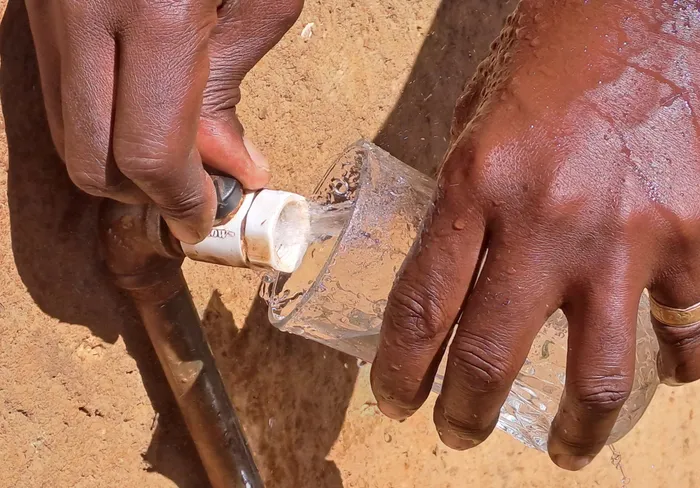
A media storm has erupted over the cholera outbreak in Hammanskraal, while some families are now grieving for their dead relatives. Picture: Jacques Naude / African News Agency (ANA)
Anthony Turton
Cape Town - This week, our national sewage crisis really began to bite. A media storm has erupted over the cholera outbreak in Hammanskraal, while some families are now grieving for their dead relatives.
It is important that we start this story by remembering the dead, because they were breadwinners in families, all doing their best to survive the tribulations of our times.
They died unnecessarily, the victims of the slow onset disaster I spoke of in 2008 at a conference titled “Science Real and Relevant”.
At that conference, reference was made to three water quality challenges that we, in the dwindling aquatic sciences community, were all too aware of, but unable to speak about.
We noted trends that data sets were showing us, and we felt a growing sense of alarm about the consequences of the trajectories on the graphs.
We noted that our systems were failing rapidly, with much of our hard infrastructure in the water sector approaching the end of its useful design life. We noted with alarm the loss of skills, as the ravages of purging took its toll on our science, engineering, and technology core.
We noted the loss of dilution capacity in all our rivers after the first National Water Resource Strategy (NWRS), mandated by the National Water Act (NWA), indicated that we had allocated 98% of all the water in all our rivers and dams, as far back as 2002.
We noted the migration of plumes of uranium moving into the headwaters of both the Vaal and Crocodile rivers, both tributaries of the Orange and Limpopo respectively, driven by uncontrolled decant of acid mine water, as the gold mining industry started to collapse.
From these sets of data, a simple conclusion was drawn – South Africa was heading for a slow onset disaster unless we could convince our political leadership that we needed to do things differently.
Here are some facts in the wake of the cholera crisis.
For example, Hepatitis A is a waterborne pathogen directly related to sewage-contaminated rivers, but this is being reported separately in our slow onset disaster, so the penny has yet to drop.
So, this is where we are today. People are dying as a direct consequence of decisions made by a former minister, who clearly failed in her custodial role.
She must ultimately be held to account for her dereliction of duty and blatant betrayal of public trust.
Just this week, a spokesperson for the Presidency noted that his office was unable to intervene in another crisis, because the co-operative governance clause in our Constitution prevented one sphere of government from intervening in the activities of another sphere.
We must challenge this constitutional weakness and seek clarification from the appropriate court. How can a constitutional clause be so irrational as to prevent one part of government from intervening in another to avert a catastrophe?
How many more lives must be lost to the absurdity of legal protection for those in power, while their activities are clearly not in the best interest of society as a whole?
Surely a constitutional democracy is about empowering the citizens by protecting them against the consequences of failed service delivery.
From the depths of despair in the families of those whose lives have been lost to an entirely preventable illness, let us find the strength to rally as one and shout out, “enough is enough”.
Our noble constitution grants all citizens the right to a better life in an environment that is safe from harm.
Let us restore that dream by demanding that our sewage flows be brought under control.
Surely this is the basis of modern civilisation, irrespective of political persuasion or ideological preference.
Professor Anthony Turton is a water expert from the Centre for Environmental Management at the University of the Free State.
Cape Times